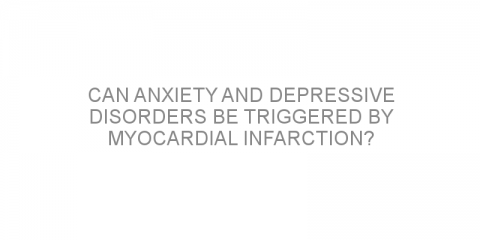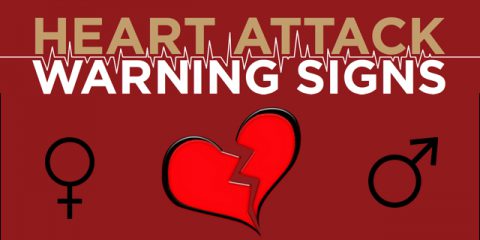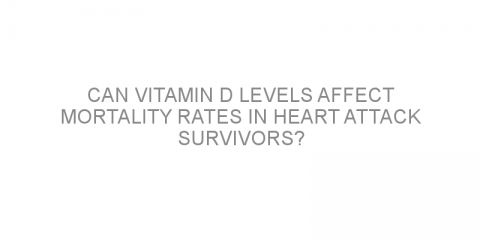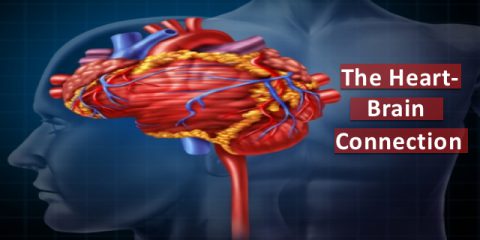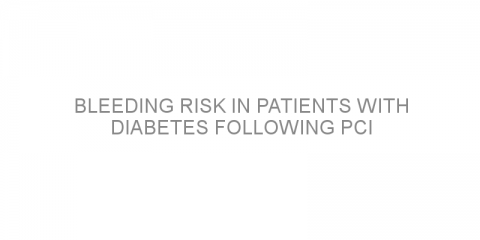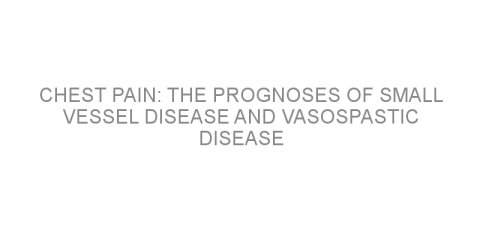In a nutshell The aim of this study was to examine the association between psychiatrist-diagnosed psychiatric disorders and cardiovascular prognosis. The study determined that the risk of anxiety and depressive disorders was increased in patients after acute myocardial infarction. Some background Acute myocardial infarction (MI) is more...
Read MoreCoronary artery disease Posts on Medivizor
Can diabetic status help in determining adverse events of acute coronary syndromes?
In a nutshell This study aimed to determine the timing of mortality and other non-fatal adverse events according to diabetic status and type of acute coronary syndrome (ACS). It was found that the type of ACS but not the diabetic status determines the timing of fatal and non-fatal adverse events. Some background Patients with diabetes mellitus...
Read MoreHeart Attacks Aren’t Always Like the Movies
According to the movies, a heart attack is dramatic and obvious. Pain in the left arm and severe chest pain tells you it’s time to call 911. But the reality can be quite different. Nausea can be a symptom in both men and women. Shortness of breath, without doing anything, is a sign. Women may experience dizziness, feel pain in their upper back, or...
Read MoreCan vitamin D levels affect mortality rates in heart attack survivors?
In a nutshell This study looked at the effect of vitamin D levels on mortality rates in patients who have survived a heart attack. The authors concluded that overly low or high levels of vitamin D significantly increased the risk of mortality in patients who have survived a heart attack. Some background When a coronary artery (the blood vessels...
Read MoreThe Heart-Brain Connection: New Findings on Stress and Heart Attack
How does stress affect the body? Newly published research may provide clues to the impact of emotional stress on different parts of the body. In their study, the researchers wanted to learn if there was a connection between a specific part of the brain, called the amygdala, and cardiovascular health. The Amygdala There are actually two amygdalae, one on...
Read MoreBleeding risk in patients with diabetes following PCI
In a nutshell This study looked at the risk of bleeding in patients with diabetes following a coronary intervention and treatment with dual anti-platelet therapy (DAPT). The authors concluded that patients with diabetes had a lower risk of bleeding while receiving DAPT compared to patients without diabetes. Some background Coronary artery disease...
Read MoreChest pain: The prognoses of small vessel disease and vasospastic disease
In a nutshell This paper examined the long-term prognoses of small vessel disease (when the walls of the small arteries in the heart are damaged) and vasospastic disease (contraction of blood vessel). Researchers concluded that both conditions significantly increased mortality risks and the risk of a heart attack. Some background A coronary...
Read MoreRecommendations for dual antiplatelet therapy
In a nutshell This paper by the American College of Cardiology and American Heart Association provides recommendation on dual antiplatelet therapy (DAPT). Some background Dual antiplatelet therapy (DAPT) is a treatment for coronary heart disease involving the use of two antiplatelet (blood thinning) drugs. This is usually given...
Read MoreGuest Post: Fight Inflammation with Stuffed Bell Pepper Bake
Holly Clegg shares another of her delicious recipes for the holidays. Here’s one from Eating well to Fight Arthritis (inflammation recipe) called Stuffed Bell Pepper Bake To Fight Inflammation. Anti-Inflammatory Foods What’s the big deal about anti-inflammatory foods? Certain foods can actually help ease arthritis symptoms. Chronic, or...
Read MorePredicting the need for a repeat procedure after PCI
In a nutshell This paper studied the need for a repeat procedure after a percutaneous coronary intervention (PCI) in elderly patients. The authors developed a model to predict the risk of a repeat procedure following a failed PCI. Some background Percutaneous coronary intervention (PCI) is a procedure done to improve blood supply to the heart. PCI...
Read MoreHeavy physical exertion, anger and emotional upset are risk factors for a heart attack
In a nutshell This paper studied whether heavy physical exertion and emotional upset or anger could trigger a heart attack. Authors reported that these factors were associated with an increased risk of a heart attack. Some background Heavy physical exertion can be a temporary strain on the heart. Anger or emotional upset can also increase blood...
Read MoreComparing anti-blood clotting therapies after a percutaneous coronary intervention
In a nutshell This paper studied what the optimal medical therapy after a percutaneous coronary intervention should be. Researchers concluded that dual therapy was associated with lower bleeding rates compared to triple therapy. Some background A percutaneous coronary intervention is a non-surgical procedure done to improve blood flow to the...
Read More
